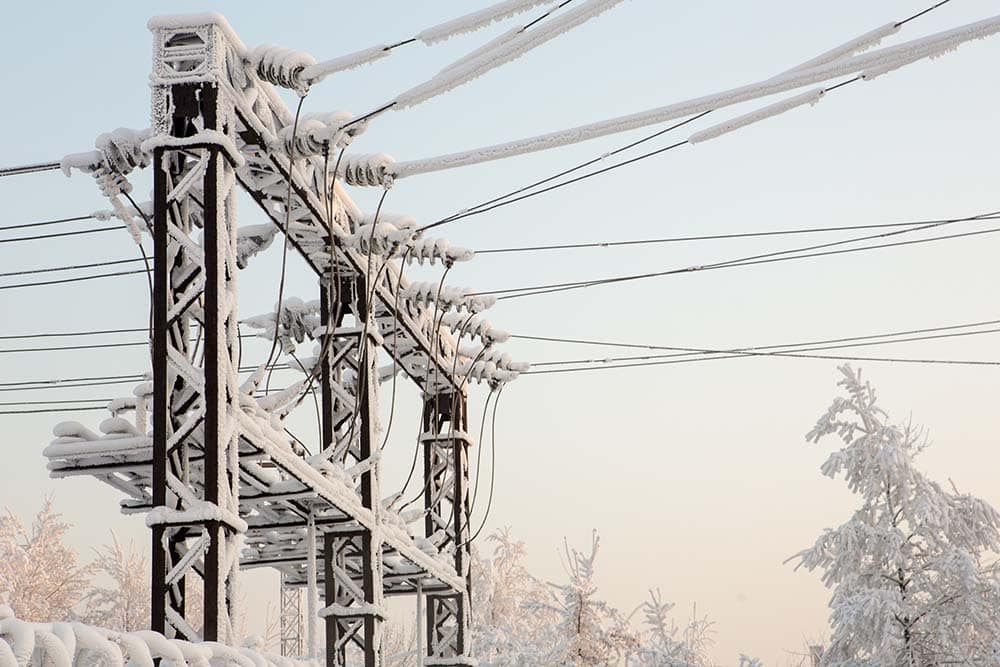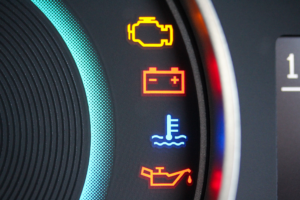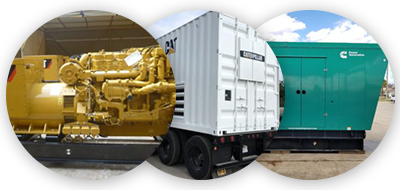
Damage from power outages: the top 7 industries at risk
For many industries, a power outage is far more than an inconvenience. It can cause production delays, loss of vital information, security breaches, and in the most severe cases, loss of life. Power outages result from grid failures, utility maintenance, and natural disasters. In the last twenty years, power outages from severe weather have more than doubled in the US.
In addition to the loss of power, freezing weather and winter storms cause damage, destruction, and economic losses. While power grids need repair and updating, businesses can mitigate these risks with a backup power plan. How your business fares depends on many factors, including winter storm preparedness, type of industry, and reliance on utility infrastructure.
Some industries are more affected by winter storms than others. Certainly, those located in the northern regions are more at risk. Still, recent storms have traveled further south, bringing damaging ice, snow and freezing conditions affecting more than just industry in the northern states.
These eight industries have the most to lose during a power outage:
1. Manufacturing Industry
A power failure in a manufacturing facility halts all operations. As a result, the manufacturing business loses money due to loss of production, possible machinery breakdown, and loss of time. Additionally, a manufacturing standstill disrupts the supply chain, leading to more significant problems.
In February of 2021, Winter Storm Uri caused widespread plant outages, causing a drop in production. Stormy weather battered the South, leaving large parts of Texas without power or water for days. The deep freeze shut down oil production and refineries in Texas, the biggest natural gas and oil producer in the United States.
The shutdowns result in a decreased gasoline supply and plastic shortages that affect other manufacturing industries and, ultimately, the supply chain. Whether manufacturing textiles, electronics, petroleum products, or fabricating metals, manufacturing industries need power to produce goods from raw materials, and a reliable backup power plan is a manufacturing necessity.
2. Financial Services Industry
Power failures also negatively impact financial corporations, such as banks, insurance firms, investment firms, and the stock market. Even a momentary power failure leads to potential losses when corporations cannot make important transactions.
A backup power plan is essential for continuous operation, and a backup plan includes redundancy should systems go down. Duplicating file servers, phone systems, internet connections, and data in an alternate location brings digital systems online quickly if one office of a financial institution is inoperable.
3. Information Technology Services
Information Technology and consulting services are familiar with downtime. They schedule downtime to maintain servers and fix bugs; planning downtime benefits productivity and loss reduction. On the contrary, unplanned downtime from power loss is devastating to IT firms, causing crucial losses. Data recovery and revenue loss cause the most concern during power outages.
Recovering data in the wake of crashed computer systems, lost data, and communication interruptions takes weeks. Programs and data risk corruption and IT issues that follow an abrupt loss of power can be costly for firms and their clients.
4. Data Centers
Data centers keep data flowing and sensitive information secure. An uninterrupted power supply is required for a data center to run without critical loss of data and productivity. Data centers have specific backup power needs. A loss of power, even very briefly, could require a total restart and interrupt data flow. Utilizing distribution equipment creates power redundancy, providing continuous power to your data center in the event of a storm that prevents putting data centers at risk of operational loss.
During the power disruption of winter storm Uri, data centers in Texas remained online. The three major data centers in Texas, DataBank, Evoque and Skybox Datacenters, reported no failures during the power outages due largely to their preparedness. Backup generators and protocols established before the storm hit went into action as soon as power was disrupted and kept their systems running throughout the disaster.
A backup power plan that keeps data centers in operation when winter storms cause widespread power outages means continuous productivity, reducing loss of revenue, and running critical systems to aid recovery and emergency communication during the storm’s aftermath.
5. City Control Centers
Commuters across the country rely on public support systems to get them places. Control centers help guide, time, and operate rail systems, traffic signals, and air traffic. Disruption in such critical operations puts the safety and security of millions of unsuspecting consumers at risk.
The arrival of a hurricane will slow or halt transportation traffic due to the nature of such a natural disaster. Still, the following loss of power affects the function of these systems and public safety. Control centers are vital to the rescue and recovery after storms, and their operations are essential to public safety. Without reliable transportation technology, railways stop running, traffic lights go down, and gridlock in the streets is inevitable, making it hard for emergency responders to help those who need it.
6. Perishable and Food Industry
Food and beverage plants and pharmaceutical companies must keep inventory safe and secure during a power outage. Most have inventory that requires refrigerated storage, and a power failure could mean spoiled food and ingredients, damaged medications, production delays, and revenue loss.
When a nor’ester knocked out power to the city of Newburyport, Maine, in 2018, Nick’s Pizza was prepared with a backup power plan that kept their business running. Not only was Nick’s Pizza able to save valuable inventory of perishable items, but also they were open for business and provided hot pizzas to people without power.
Reliable refrigeration and monitoring of temperatures are essential for food-related businesses as well as the highly automated pharmaceutical manufacturing industry. Determining the best backup power solution varies significantly from company to company. Defining the problem and developing an optimal solution strategy will help enhance a company’s operations and productivity while protecting revenue.
7. Healthcare Facilities and Providers
Providing quality healthcare and life-saving services is the priority of every hospital, surgical center, urgent care center, and nursing home. Communities rely on the uninterrupted service of medical facilities every day, especially in times of crisis. When faced with a power outage, hospitals must continue functioning and require backup power to operate monitors, oxygen pumps, and life support machines.
Being offline in an emergency is not an option for the healthcare industry. Hospitals, especially, need continuous power to maintain the health and safety of their patients.
Safeguard your business against power outages
In any industry, a power failure costs time and money. Additionally, the negative impacts have a ripple effect on many aspects of society, including the availability of goods and services, public mobility, security risks, and public health and safety.
Avoid unnecessary power losses with a comprehensive backup power plan tailored to your industry’s needs. Depco’s sales team will help you address all power outage risks and provide practical, reliable solutions to keep your business running under any circumstances.






